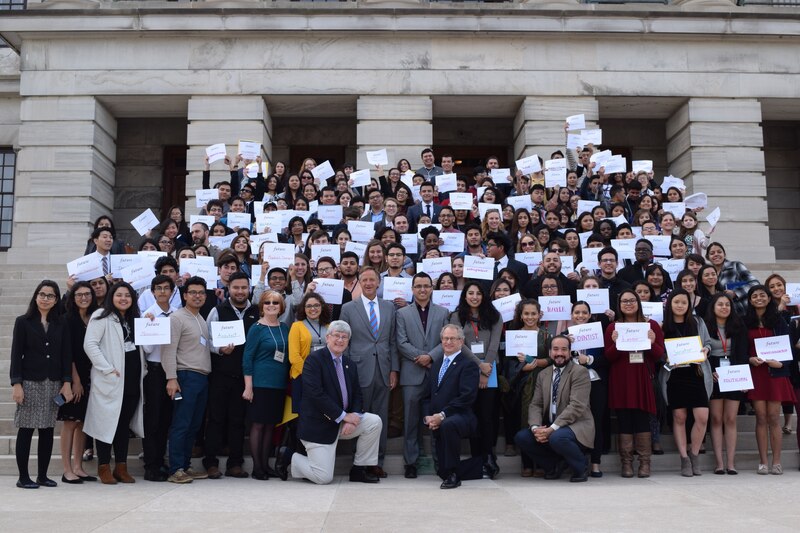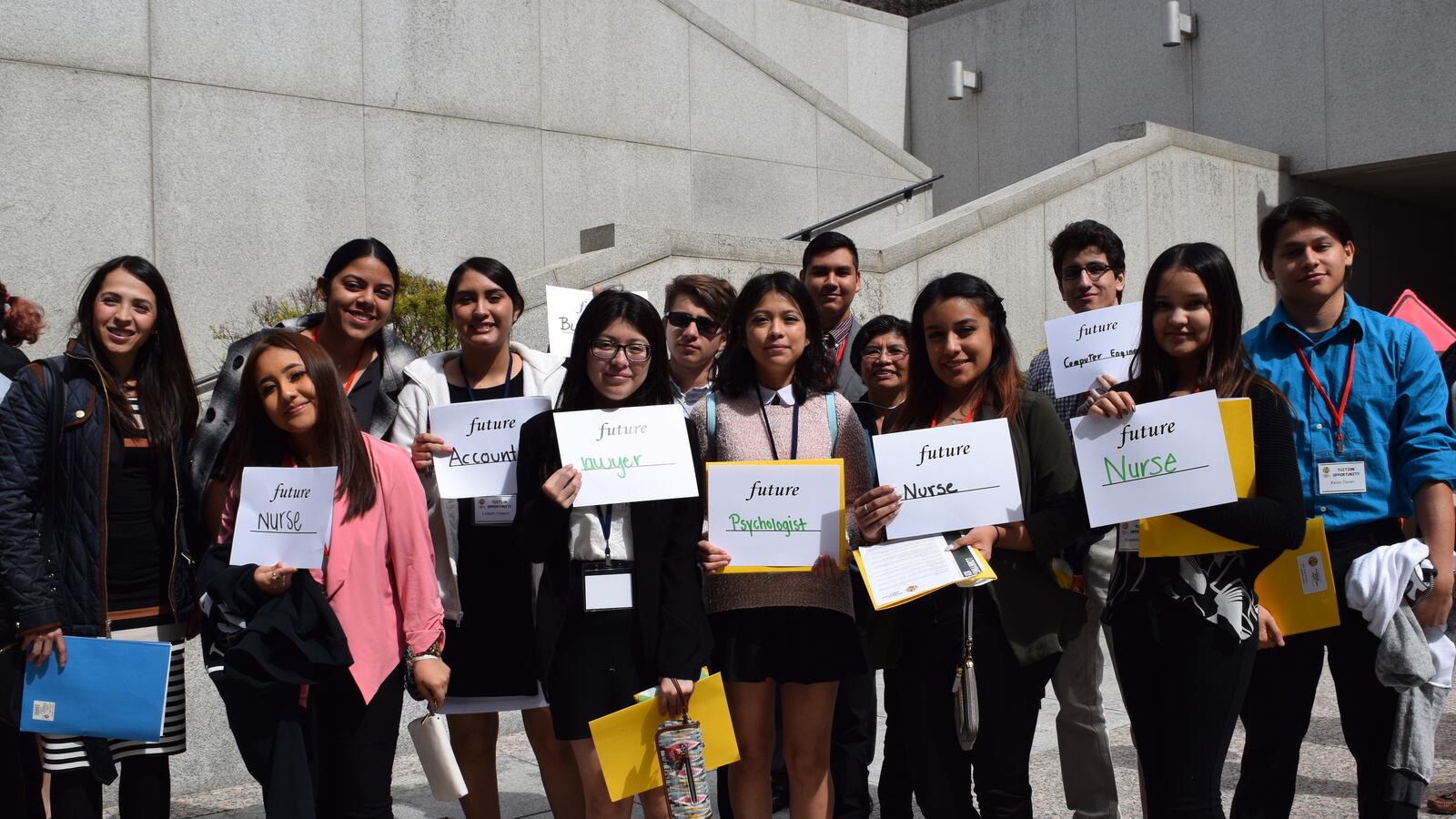A proposal to ease the pathway to college for about 13,000 Tennessee students died by a single vote in a House education committee on Tuesday, as young people who would have benefited looked on.
For the third year, Rep. Mark White of Memphis had sponsored a bill that would grant in-state tuition to undocumented immigrants, arguing that expanded education access would be a boon for all Tennesseans.
But opponents shot down the measure 7-6 after hearing discussion mostly in favor of it. Rep. Dawn White, a Murfreesboro Republican, was the only lawmaker to speak against the bill. She argued that the policy would make Tennessee a magnet for illegal immigration.
About a dozen immigrant students had crammed into a committee room at the State Capitol in Nashville to witness the vote. Many were moved to tears by the outcome. The panel’s decision means Tennessee students who are in the country illegally must pay two to three times higher than their counterparts who pay in-state tuition to attend a public college.
The scene was reminiscent of 2015, when a similar bill made it all the way to the House floor, only to fail by one vote because a Democratic supporter was absent.
This year, the measure had passed the Senate Education Committee and had the endorsement of Gov. Bill Haslam and the state’s largest college system, which stood to enjoy millions of dollars in increased revenue if it passed.
White wants Tennessee to join 20 states that allow undocumented immigrants to have in-state tuition. He argued that his proposal would help set the life trajectories of thousands of students, as well as their future children who will be citizens of Tennessee and the U.S.
“Most of these young people come from modest means. To pay $28,000 a year is out of the question,” he said. “I believe that it’s a basic conservative argument that if a person is willing to get up every morning, go to work, go to school, and better their life — that is what we have been about as a party all of my life.”

Karla Meza, a recent high school graduate from Knox County, shared her story in hopes of swaying lawmakers on the fence. While most of her classmates at Powell High School could earn an associate’s degree for free through the Tennessee Promise, she pays nearly $10,000 a semester, or $697 per credit hour. Six credits short of an associate’s degree, Meza aspires to attend law school at the University of Tennessee at Knoxville.
“We’re all here today to better our future, better our state, better our families,” she said.
Rep. Johnnie Turner, a Democrat from Memphis who is black, said Meza’s struggle reminded her of her own experience as a young woman of being barred from attending many Tennessee schools because of her race.
Expanding college access has been a top priority in the legislature in recent years, and Turner said the bill was in the spirit of Drive to 55, a 2014 state initiative to boost the percentage of Tennesseans with college degrees to 55 percent.
“The Drive to 55 didn’t say anywhere that we were going to discriminate against anybody,”she said. “Drive to 55 is for African-Americans, for Caucasians, for Hispanics, for all of the ethnic groups that make our state what it is.”
Arguing against the bill, Dawn White cited Georgia, which not only bars undocumented immigrants from receiving in-state tuition, but forbids them from enrolling in many state universities altogether. “Overcrowding is going happen,” she said. “We’ve thought long and hard about this, but you know, right is right, and wrong is wrong, and I cannot pass the burden onto taxpayers of Tennessee.”
In fact, the 20 states that already grant in-state tuition to undocumented immigrants have not seen noticeable upticks in illegal immigration. And Georgia has one of the highest undocumented populations in the nation.
Mark White acknowledged the current political climate, in which President Donald Trump campaigned to build a wall along the U.S.-Mexico border to stem immigration. But he said his bill is about education, not immigration.
“If I didn’t believe this was the right thing to do, I would not put our committee through this, because it’s hard. With national politics, it’s hard. But we’ve got these young people who say, ‘I just want to have a chance,’” he said.
Meza said she was “kind of in shock” following Tuesday’s vote but still hopes to attend law school in Tennessee.
“It’s disappointing,” she said. “The fact is, we’ve been here, we graduated from Tennessee high schools, and we do pay money to the state.


